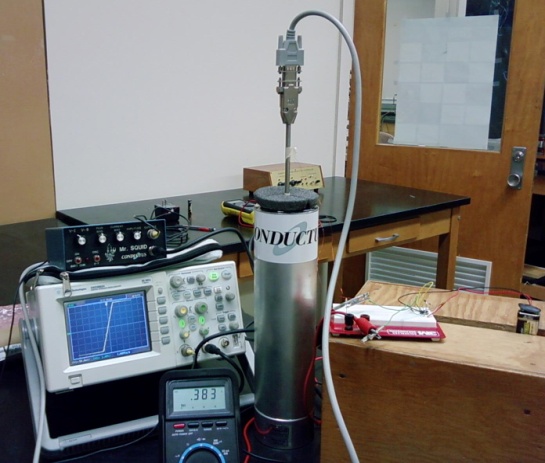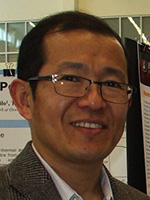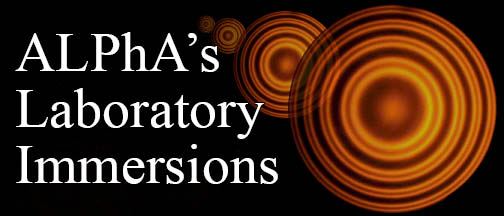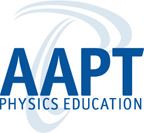- Home
- What We Do
- Laboratory Immersions
- Immersions 2019
- Imm2019Buffalo_HighTC
High TC Superconductivity and the SQUID
Buffalo State College, June 13 - 15, 2020
(One set-up available)

The superconducting transition of the YBCO sample can be observed in the resistance versus temperature graph. For the resistance measurement, we'll build a battery-run constant current source (∼10 μA). Since a silicon diode demonstrates a linear resistive property as a function of temperature, at least down to ∼25 K, it can act as a very reliable temperature sensor. We will use it thus, calibrating it at room temperature (∼300 K) and at liquid nitrogen temperature (∼77 K). Using these two home-made devices—the current source and the temperature sensor—we can measure the resistance of the sample as a function of temperature from room temperature down to the boiling temperature of liquid nitrogen (∼77 K). We also plan to perform the resistance measurement of superconducting pellet samples using the 4-point technique with a dc power source and digital multimeter.
The cost of the Mr. SQUID apparatus is ∼$4800. An oscilloscope is required.
Host and Mentor:

Ram C. Rai is Associate Professor in the Department of Physics at Buffalo State College. Professor Rai has been doing experimental research in condensed matter physics since he was a graduate student at the University of Kentucky. His research interests include the study of electronic and magnetic materials via transport, optical, electro-optical, and magneto-optical techniques. He is particularly interested in the growth and study of thin films of multiferroic complex oxides with functional properties. He has been teaching the advanced physics lab since Fall 2007 and has mentored several undergraduate students on research projects.
Ram C. Rai, Associate Professor, Buffalo State College, Department of Physics, 1300 Elmwood Avenue, Buffalo, NY 14222. Email: rairc@buffalostate.edu. Telephone: 716-878-3767.





